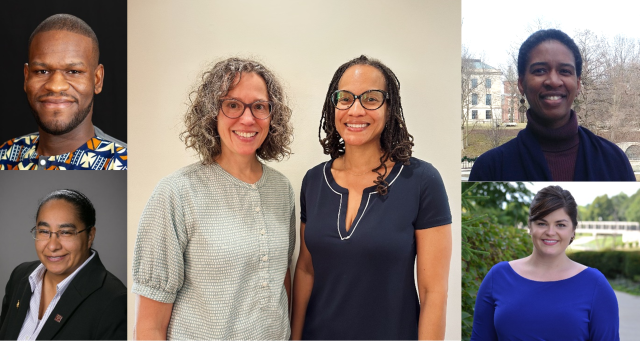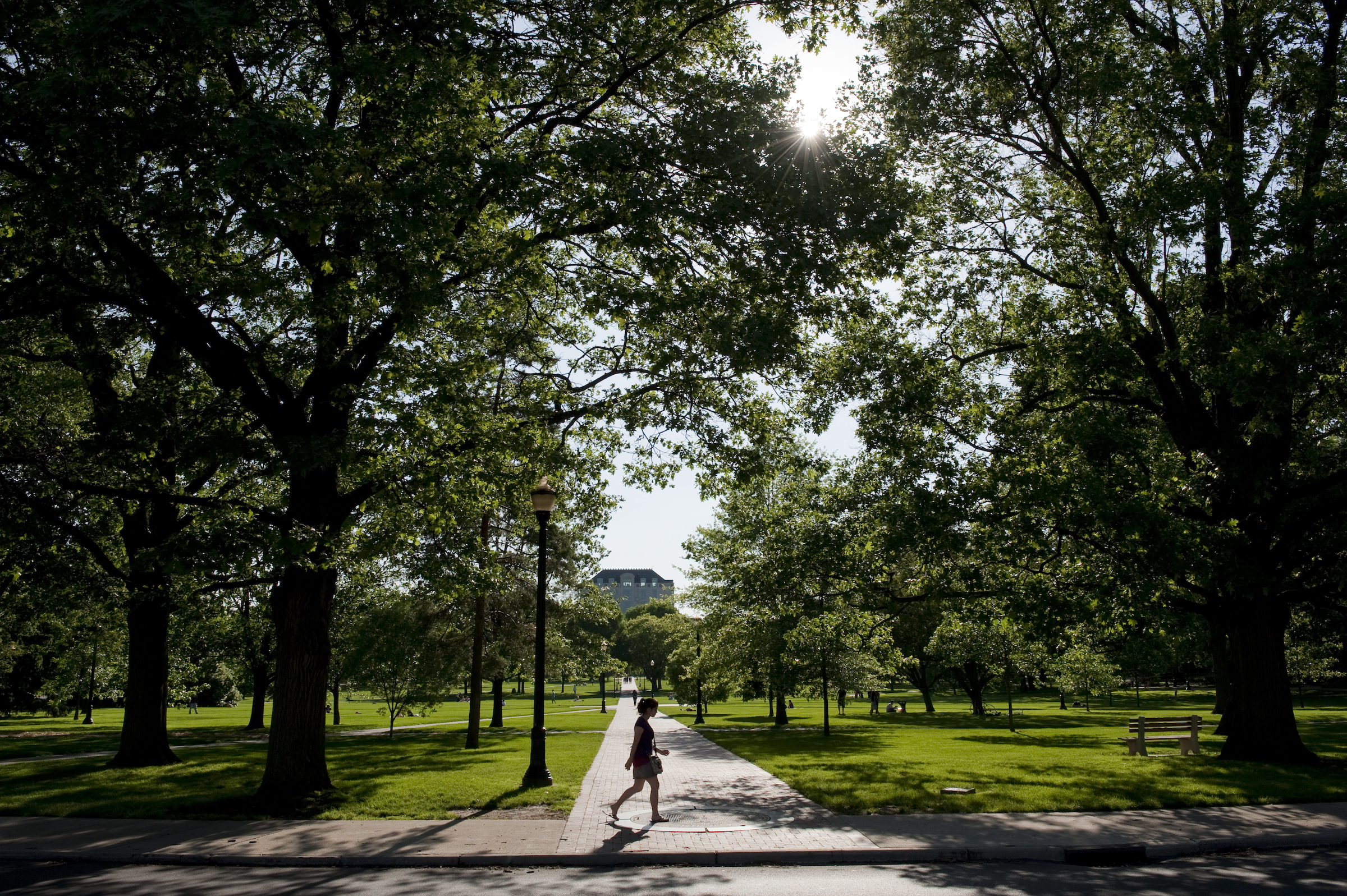The Student Academic Success Research (SASR) Grants program is pleased to announce its 2023 round of grantees. This year, the SASR Grants program was expanded to include creative arts projects in recognition of the impact arts can have on student success. Each SASR-funded research and creative arts project has clear, practical implications for the design, implementation, engagement or scale-up of practices to improve Ohio State student success. This year’s projects focused on topics ranging from engaging underrepresented students in the social impact of design to developing and testing culturally responsive pedagogy in ecology and environmental fields.
Research proposals were rated for methodological quality and practical importance; creative arts proposals were rated for impact or engagement potential with relevant audiences. All proposals were reviewed by a panel representing multiple administrative units, academic colleges and campuses across the university.
The Student Success Research Lab coordinates the SASR Grants program, which is supported through funding for student academic excellence and inclusive excellence.
“We are so excited to support this work and see the variety of ways these projects innovate in addressing student success. Including both research and now creative arts projects is truly enhancing the work being done at Ohio State,” said Wendy Smooth, senior vice provost for inclusive excellence.
2023 winning proposals and primary investigators/project leads

- Hold It Dear: Co-Designing the Preservation of Cultural Artifacts (Shadrick Addy, assistant professor, Department of Design). This creative arts project, in collaboration with students from the existing Mayo Mentorship Program, will co-design a framework for community engagement to facilitate participatory activities with a Columbus-area community organization, leveraging a co-design approach to uncover and preserve tangible and intangible cultural artifacts community members hold dear. It aims to increase the visibility of Ohio State’s design program within central Ohio and build capacity for prospective first-generation students to engage in the type of social impact the design discipline makes possible.
- The Ohio Prison Education Exchange Project (OPEEP) — Creating Campus Climates for Prison to College Pathways (Mary Thomas and Tiyi Morris, OPEEP directors). This creative arts project aims to inform campus communities about the realities and facts of mass incarceration, how it currently affects many of our students’ lives, and the steps we can take as students, teachers and staff to create new spaces of learning and work to encourage those impacted by the criminal justice system to find success at Ohio State. This will be accomplished through creating and disseminating a range of media and informatics to impact campus cultures and illustrate the benefits of welcoming those impacted by the justice system to our communities of learning.
- Engaging Students in Ecology Through Culturally Responsive Pedagogy (Maria Miriti, professor, Department of Evolution, Ecology and Organismal Biology). This study will develop and test culturally responsive pedagogy to address cultural and social barriers to the retention of minoritized students in ecology and environmental (EE) fields. In particular, this study will investigate challenges and barriers to instructor use of culturally responsive pedagogies in ecology and introductory biology courses, design and test tools for instructors to pilot, and assess whether inclusion of culturally responsive practices in EE classes increases student sense of belonging in EE fields.
- Fostering Intercultural Competence To Enhance STEM Undergraduate Education for Tackling Wicked Problems (Cherish Vance, instructor, Department of Food, Agricultural and Biological Engineering). This study focuses on transdisciplinary and intercultural learning experiences in engineering by investigating barriers to participation, examining student outcomes and how these outcomes vary across students from different demographic backgrounds, and exploring the extent to which intercultural learning practices and outcomes contribute to the overall academic success of underrepresented minority and first-generation students. Findings will inform and influence the development of courses and programs in the College of Engineering that aspire to leverage intercultural learning to address “wicked problems” — complex issues without clear boundaries driven by stakeholders’ differing values, interests and conceptions of the problem and its solution.
- Enhancing Medication Safety Practices Among First-Generation and Underrepresented Students (Brittany Sandidge, program manager, Generation Rx). To address the negative relationship between prescription drug misuse and student academic success, in 2007, the university established an evidence-based prevention strategy known as GenRx. This study will conduct a multi-faceted needs assessment in terms of medication use/misuse knowledge, behaviors and beliefs among first-generation and underrepresented student groups to determine how GenRx and other university programs related to prescription drug safety currently support the needs of these student populations. Findings will generate a more comprehensive understanding of the unique or shared perspectives of these populations in terms of medication misuse and provide a foundation for improving current prescription medication education and prevention programs, reducing misuse and improving student success.
For more information about the SASR Grants Program, including a list of past grantees, visit the Student Success Research Lab website.
